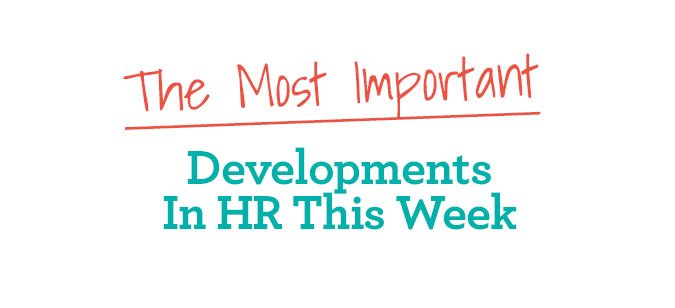
This year, we’ve seen harassment claims topple everyone from business leaders to entertainment moguls to, perhaps, a Supreme Court nominee. Now we’re in the middle of the most famous case of he-said she-said since Anita Hill. Other women came forward alleging similar abuse and harassment took place, while two unidentified men now say it was them, not Brett Kavanaugh and Mark Judge, who assaulted Christine Blasey Ford all those years ago. So, who is telling the truth? HR faces the same question when an employee alleges harassment, the harasser says it didn’t happen, and there are no witnesses to corroborate either side. An investigation with due process, perhaps even involving a neutral third party to interview both people and other employees, will help the truth to come out and help the company avoid potential liability if the harassed employee sues. CNN


In this age of intense political divisiveness in this country, it’s inevitable that people’s political views spill from their dinner tables and Facebook pages into the workplace. But is it a good idea? Indeed wanted to find out, so it surveyed 2,000 employees to get their views on the subject. Some 20 percent want to leave politics at the door, while 23 percent say political groups are silenced in the workplace and 54 percent are okay with the level of political discourse in their workplaces. More men than women are comfortable sharing their political views with co-workers (no surprise there). Percentages aside, political arguments among co-workers are bad for morale and teamwork. Bottom line, you know what they say about politics and religion. Indeed


COMPANIES discriminate. They discriminate against black people, poor people, gay people and fat people—oh yes they do. Using callback studies, in which fictitious CVs for identically qualified candidates are sent to employers, economists have become quite good at measuring the penalty paid for being a woman, a racial minority or lower-class. Identical résumés under Asian-sounding names are 30% less likely to get call-backs from employers; for black-sounding names the penalty is 50%. The Economist


Science fiction is full of artificial intelligence that gains consciousness and wreaks destruction on humankind. In reality, the threat is less dramatic but just as scary, according to historian Yuval Noah Harari, who predicts upheaval in the workforce, global governments and our emotional lives. WSJ


Well, that’s a buzzkill. It came from Dr. Alissa Johnson, VP and CISO of Xerox, while speaking at a Forrester event on Wednesday. She says there hasn’t been effective focus on where to find diverse candidates for the 1.2 million cybersecurity jobs estimated to be open within the next two years. Johnson says the industry should be focusing on every schoolchild with a smartphone and showing them how easy it can be to breach their phone. It will get them salivating to learn more, she predicts. CIO Dive


The EEOC is on fire hunting down companies that do nothing about sexual harassment in the workplace. The latest to feel the EEOC’s wrath is a Phoenix restaurant, Mariscos Altata, in which women complained of harassment dating back to 2011. Not only were they subjected to unwanted, lewd behavior, but the restaurant actually retaliated against women who refused to comply with sexual demands. If you’re thinking: “Somebody please tell these managers it’s 2018,” the EEOC did just that. The restaurant was slapped with a six-figure fine, back pay, compensatory and punitive damages, and relief to prevent discrimination and harassment in the future. The harasser was fired. And, in a move my grandmother would’ve insisted on, the restaurant higher-ups must write letters of apology to the women.EEOC


Fareed Zakaria, a Washington Post columnist and CNN commentator, was talking about Francis Fukuyama’s new book, “Identity: The Demand for Dignity and the Politics of Resentment” this week. Fukuyama argues that identity stems from humans’ deep-seated psychological need to be recognized as possessing dignity. In recent decades in the understandable search for recognition, persecuted minority groups such as blacks, Hispanics, and gays have celebrated their identity and so have working class whites who feel now ignored and forgotten. The answer is not to reject identity politics but to construct broad identities that can embrace others and unify different groups. The E.U.’s founders, he argues, spent too much time building the technical aspects of the European project — laws, rules, tariffs. They neglected to nurture an actual European identity. Something people could believe in, not for rational reasons, but for emotional and idealistic ones. That translates directly to the workplace and the importance of culture. The Washington Post










